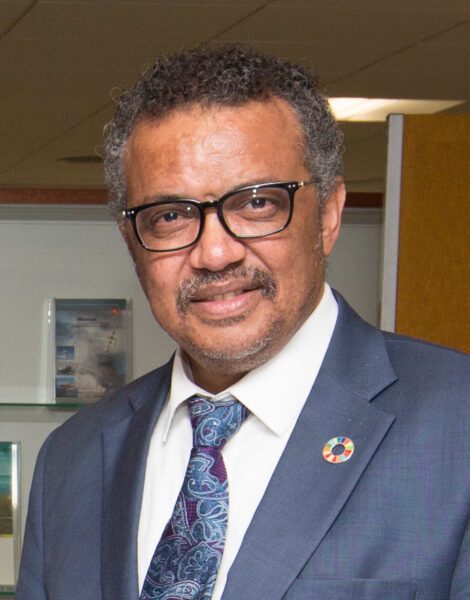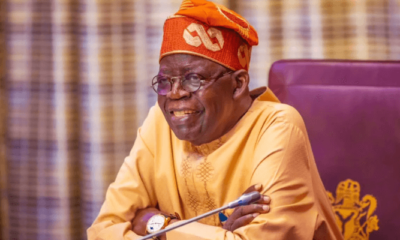Global Issues
Sedentary Lifestyles: A Global Health Crisis, Says WHO -By Isaac Asabor
According to the article, inactive lifestyle affect the body as fewer calories are burnt making anyone whose lifestyle is inactive to be prone to likely gaining weight, losing muscle strength and endurance, because he or she is not using the muscles as much.

It is no more news that a new data released by the World Health Organization (WHO) reveals a concerning trend as it says nearly one third (31%) of adults worldwide, approximately 1.8 billion people, did not meet recommended levels of physical activity in 2022. Against the backdrop of the foregoing, WHO projected that lack of exercise puts adults at greater risk of cardiovascular diseases, type 2 diabetes, dementia, and certain cancers.
Given the findings, the WHO recommends that adults engage in 150 minutes of moderate-intensity or 75 minutes of vigorous-intensity physical activity per week. The global health body further projected that if the current trends continue, inactivity levels are projected to rise to 35% by 2030, therefore resolved to prioritize bold action to reverse this worrying trend and promote a healthier, more active global population.
At this juncture, it is compelling to throw insight into what sedentary lifestyle is all about. According to an online health platform, medlineplus.gov, an article posted on it titled, “Health Risks of an Inactive Lifestyle” speaks volumes and quite explanatory in this context.
As gathered from the aforementioned article, sedentary lifestyle, also called sitting disease or inactive lifestyle is “Being a couch potato. Not exercising. A sedentary or inactive lifestyle. You have probably heard of all of these phrases, and they mean the same thing: a lifestyle with a lot of sitting and lying down, with very little to no exercise.
“In the United States and around the world, people are spending more and more time doing sedentary activities. During our leisure time, we are often sitting: while using a computer or other device, watching TV, or playing video games. Many of our jobs have become more sedentary, with long days sitting at a desk. And the way most of us get around involves sitting, in cars, on buses, and on trains.”
According to the article, inactive lifestyle affect the body as fewer calories are burnt making anyone whose lifestyle is inactive to be prone to likely gaining weight, losing muscle strength and endurance, because he or she is not using the muscles as much.
In a similar vein, such person’s bones may get weaker and lose some mineral content, even as his or her metabolism may be affected, and the body may have more trouble breaking down fats and sugars
Also in a similar vein, his or her immune system may not work as well as there may be occurrence of poorer blood circulation, even as the body may have more inflammation. In fact, not only that, such person may develop a hormonal imbalance.
As regard the inherent health risks in inactive lifestyle, the article conveys the warning that indulging in inactive lifestyle can be one of the causes of many chronic diseases, saying that by not getting regular exercise that it can raise a person’s risk of obesity, heart diseases, including coronary artery disease and heart attack, high blood pressure, high cholesterol, stroke, metabolic syndrome and Type 2 diabetes, and added that certain cancers, including colon, breast, and uterine cancers may be suffered from by anyone that indulges in inactive lifestyle.
Worse still, it added that having a sedentary lifestyle can also raise a person’s risk of premature death, and that the more sedentary a person is, the higher his or her health risks are.
Back to WHO report titled, “Nearly 1.8 billion adults at risk of disease from not doing enough physical activity”, which was earlier made reference to in this context, “New data show that nearly one third (31%) of adults worldwide, approximately 1.8 billion people, did not meet the recommended levels of physical activity in 2022. The findings point to a worrying trend of physical inactivity among adults, which has increased by about 5 percentage points between 2010 and 2022.
“If the trend continues, levels of inactivity are projected to further rise to 35% by 2030, and the world is currently off track from meeting the global target to reduce physical inactivity by 2030. The World Health Organization (WHO) recommends that adults have 150 minutes of moderate-intensity, or 75 minutes of vigorous-intensity physical activity, or equivalent, per week. Physical inactivity puts adults at greater risk of cardiovascular diseases such as heart attacks and strokes, Type 2 diabetes, dementia and cancers such as breast and colon.”
The study, which was undertaken by researchers from WHO together with academic colleagues and published in The Lancet Global Health journal, has Dr. Tedros Adhanom Ghebreyesus, WHO Director-General saying, “These new findings highlight a lost opportunity to reduce cancer and heart disease, and improve mental health and well-being through increased physical activity,” and assured by adding that, “We must renew our commitment to increasing levels of physical activity and prioritizing bold action, including strengthened policies and increased funding, to reverse this worrying trend.”
In light of these findings, WHO is calling on countries to strengthen their policy implementation to promote and enable physical activity through grassroots and community sport and active recreation and transport (walking, cycling and use of public transport), among other measures.
Dr. Fiiona Bull, Head of the WHO Unit for Physical Activity in his take said, “Promoting physical activity goes beyond promoting individual lifestyle choice, it will require a whole-of-society approach and creating environments that make it easier and safer for everyone to be more active in ways they enjoy to reap the many health benefits of regular physical activity.”
Against the foregoing backdrop, WHO disclosed the need to call for collective efforts based on partnerships between government and nongovernmental stakeholders and increased investments in innovative approaches that will be needed to reach the least active people and to reduce inequalities in access to measures promoting and improving physical activity.









